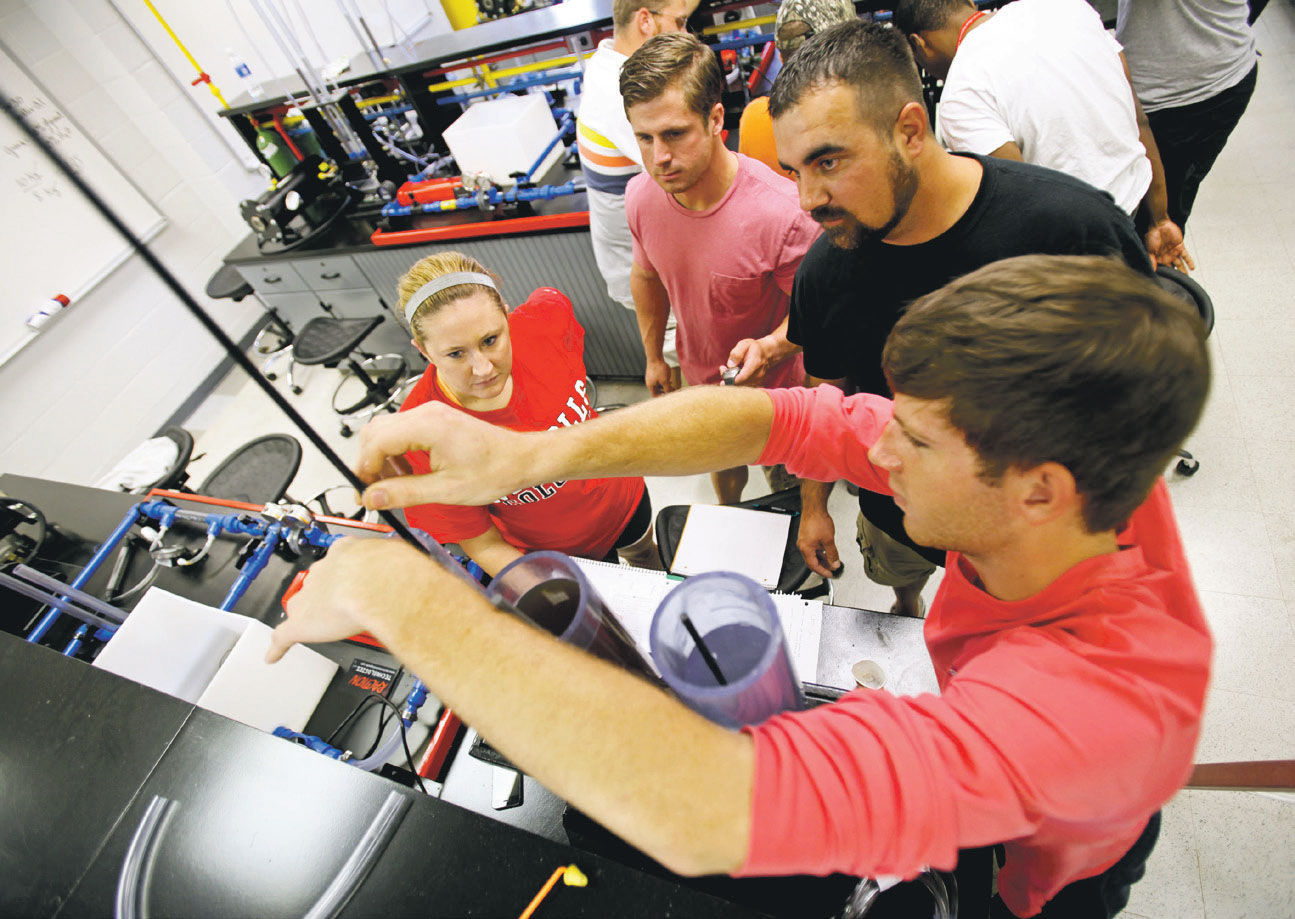
Meet Morgan Smith: A Q&A with the local artist
June 10, 2015
Terrebonne stomi ready
June 11, 2015College tuition in Louisiana has been a much-debated topic in this year’s legislative session, which is set to end at the close of business tomorrow. The tuition question is not about how much students at the state’s four-year colleges and universities will have to pay, but who will decide how much tuition should be and who will pay it.
Two bills are specifically designed to answer those questions. One will transfer the power to raise tuition from the state Legislature to the state’s higher education governing boards. The other would eliminate automatic increases in the TOPS program.
A bill in the House, authored by Rep. Thomas Carmody, R-Shreveport, would mean tuition increases would no longer require a two-thirds approval vote from the Legislature. If passed, this bill would put a Constitutional Amendment on the October ballot for voters to accept or reject. In the Senate, a bill by Jack Donahue, R-Mandeville, that would freeze TOPS awards at their level has already been sent to the governor for his signature. Gov. Bobby Jindal, however, has gone on record saying he opposes the bill. When Donahue presented his bill in the Senate, he was accompanied by Phyllis Taylor, widow of the TOPS creator, the late
Patrick Taylor of New Orleans.
TOPS, the “Taylor Opportunity Program for Students,” grants scholarships to eligible Louisiana residents who attend either one of the Louisiana Public Colleges and Universities, schools that are a part of the Louisiana Community and Technical College System, Louisiana approved Proprietary and Cosmetology Schools or institutions that are a part of the Louisiana Association of Independent Colleges and Universities.
Presently, the TOPS awards cover the full cost of tuition for eligible students over four years, and the amount has increased simultaneously with tuition increases. The bill proposes that increases would not be automatic, and that only the Legislature can vote to increase TOPS award amounts.
“What this bill does is takes the Legislature out of the tuition-setting business and gives the authority to those who are in the education business, so they can have sufficient revenue for services and other things like deferred maintenance,” Carmody said. The bill’s opponents claim the bill puts a tax on the families of college students and on the students themselves.
“I’ve never considered tuition a tax,” he said. “It’s something you pay for something in return, just like in the market place. Tuition is a payment for a service for those who want to be more educated and more valuable to society.”
One opponent of the bill was Rep. Dee Richard, I-Thibodaux, whose house district includes Nicholls State University. Although Richard voted against the bill, he did offer an amendment to cap it for two years.
“The main reason I voted against the bill is because we don’t do enough in this state to fund higher education and that’s our job,” he said.
Richard said looking at state funding for higher education in Louisiana over the past several years, it has decreased from around 65 to about 30 percent. “I’m not in favor of giving carte blanche to raising tuition and fees, because that means any fee can be added, without much explanation.”
Raising tuition, Richard said, is not the answer. That puts the burden on those who pay the tuition.
“Taxes should fund higher education and just because we can’t balance the state’s budget, that’s no reason to keep cutting higher education without making cuts in other areas,” he said.
Richard said the bill also removes performance standards from tuition hikes. “I supported the GRAD Act,” he said, “because it had performance standards built in, and that act allowed universities to raise tuition by 10 percent a year for three years, which they did, even though performance standards were not met.”
Bruce Murphy, president of Nicholls, said he supports the Carmody bill.
“The time has come and this is something that should happen,” the Nicholls president said. “Right now at Nicholls, we have no ability to change tuition – the authority is in the wrong place. Schools need more autonomy, when it comes to setting tuition and fees.”
When it comes to performance, Murphy said, Nicholls has shown it can do more with less. “Although our funding as gone down, our graduation rates are up; we’ve got performance,” he said.
The big picture, according to Murphy, is that the state has significantly decreased its support of higher education, but the Legislature still wants to control higher education institutions. The governing board structure that’s already in place can handle making decisions about tuition and schools would have to make a good case for increasing tuition to one of those boards. “They should let the folks who are doing it have a bigger say,” he said.
Murphy said passage of the Carmody bill would not mean that all schools would automatically want to raise tuition. It would mean that schools could look at their tuition and fees and make decisions. The fees vary greatly from school to school in the state, Murphy said, noting one school charges students a fee for campus security.
Neal Weaver, who is vice president for university advancement at Nicholls, said he agrees with Carmody, If the Constitutional Amendment passes, it would “allow schools flexibility in making the best decisions in pricing. Tuition is a significant component of the university’s budget and having the ability to have more input and control over that piece of the budget would be welcome,” he said.
“Right now, tuition is set by the Legislature and schools are told, ‘This is what you can charge and how much money you can get,’ and then we build according to that figure, spending all the money. If we could determine what we can do, which would be a different approach to setting the budget, we can consider the factors for tuition, like benefits, culture and necessary programs. It would be nice to be able to set the price instead of having the price set for us. It would allow the university to adjust to local needs and local economic conditions.”
At the Senate’s Education Committee final meeting last week, Carmody presented an amendment that tied the two bills together. The linking of the bills means that if the governor doesn’t sign Donahue’s TOPS bill, then the Carmody bill would have no effect.
‘Taxes should fund higher education and just because we can’t balance the state’s budget, that’s no reason to keep cutting higher education without making cuts in other areas.’
Rep. Dee Richard
Students in the Department of Petroleum Engineering Technology and Safety Management at Nicholls State University collaborate on a class project.
Dr. En Mao, associate professor of computer information systems at Nicholls State University, reviews a student’s work during a business class at Nicholls.







